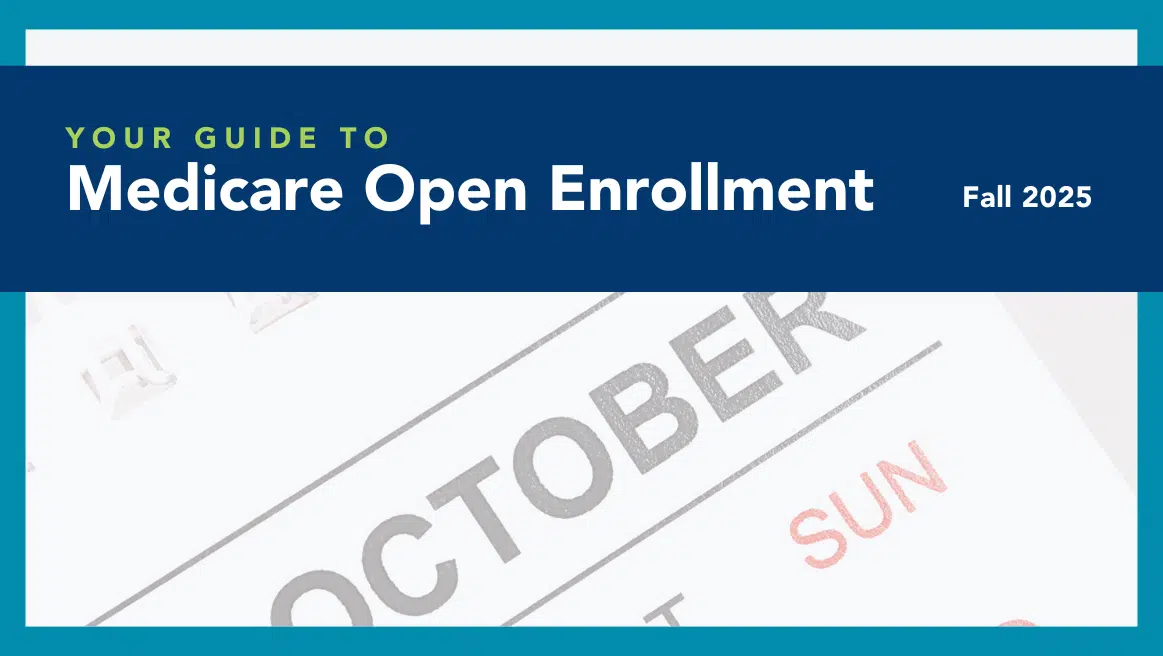
Guide to Medicare Open Enrollment
Fall is the time when many people choose what health care coverage they will have in the coming year, and
Join Us Live for a Discussion on Medicare, Democracy, and the Future of Health Care
Most people new to Medicare are automatically enrolled because they are receiving Social Security when they become eligible. But a growing number are not and must enroll on their own, taking into consideration specific timelines, intricate rules, and existing coverage. Mistakes are common and carry serious consequences, such as lifelong financial penalties, high out-of-pocket costs, disruptions in care, and gaps in coverage. Yet, few remedies are available to help beneficiaries correct honest missteps. The Medicare Rights Center supports reducing the likelihood of mistakes—including by simplifying the enrollment process and better empowering beneficiary decision-making—and improving relief opportunities for those who need them.

Fall is the time when many people choose what health care coverage they will have in the coming year, and

Medicare Open Enrollment (also known as the Annual Election Period) begins today! From October 15 to December 7, you can


Earlier this month, we flagged important changes coming to Medicare Plan Finder (MPF) for the upcoming Fall Open Enrollment period,

When people consider enrolling in Medicare Advantage (MA) plans, one of their major tools is Medicare Plan Finder (MPF). This

The Medicare Rights Center applauds the recent introduction of the Beneficiary Enrollment Notification and Eligibility Simplification (BENES) 2.0 Act (H.R.
Statement from Fred Riccardi, President of the Medicare Rights Center Washington, DC — The Medicare Rights Center strongly supports the

On this day 60 years ago, Medicare and Medicaid were signed into law, creating a national health insurance program for

On July 4, President Trump signed the damaging Republican budget reconciliation bill into law. But that does not mean each

Medicare Advantage (MA) overpayment allows plans to funnel more money into supplemental benefits, appealing to enrollees who want or need

Fall is the time when many people choose what health care coverage they will have in the coming year, and

Medicare Open Enrollment (also known as the Annual Election Period) begins today! From October 15 to December 7, you can


Earlier this month, we flagged important changes coming to Medicare Plan Finder (MPF) for the upcoming Fall Open Enrollment period,

When people consider enrolling in Medicare Advantage (MA) plans, one of their major tools is Medicare Plan Finder (MPF). This

The Medicare Rights Center applauds the recent introduction of the Beneficiary Enrollment Notification and Eligibility Simplification (BENES) 2.0 Act (H.R.
Statement from Fred Riccardi, President of the Medicare Rights Center Washington, DC — The Medicare Rights Center strongly supports the

On this day 60 years ago, Medicare and Medicaid were signed into law, creating a national health insurance program for

On July 4, President Trump signed the damaging Republican budget reconciliation bill into law. But that does not mean each

Medicare Advantage (MA) overpayment allows plans to funnel more money into supplemental benefits, appealing to enrollees who want or need